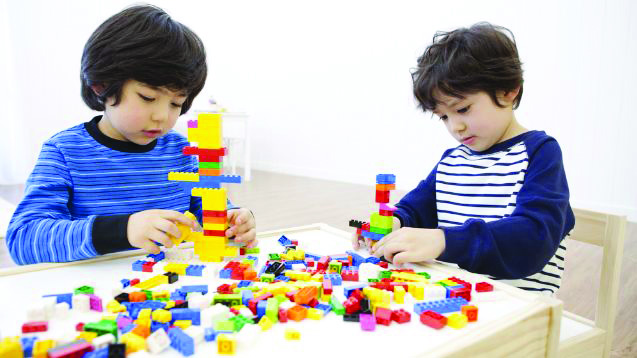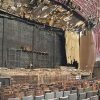Goa is abuzz with excitement as vintage bike and car owners, users, collectors and fans are decking […]

TEACH CHILDREN TO TINKER
Life & Living, Sept 07- Sept 13 2019 September 6, 2019DREAMS: Let your kids realize their own dreams with Lego blogs or AI based applications
By Arvind Gupta
Take your kids away from their books and the smart phones and let them practice how they can land on the moon…
In Chennai, where I live, one of the best schools admits predominantly upper-caste, upper-class children. This insulates them from the great diversity which is India. They will never sit next to a Muslim child or share their food with a Dalit. It is this narrow and skewed experiential base which makes people bigots when they grow up. We need to widen and enrich the experiences of our children. Under the Right to Education Act, a certain percentage of seats had to go to the poor. But the rich schools have thwarted this reservation.
In the landmark book Totto Chan (1981), a memoir by Japanese actor Tetsuko Kuroyanagi, the principal of the progressive school she attends deliberately admits children with special needs, for he is convinced that it would make the other children sensitive. Annie Koshi, the visionary principal of St Mary’s School in Safdarjung Enclave, New Delhi, is another pioneer. Twenty% children in her school are “special” children — with hearing aids, crutches, or those who are visually impaired and mentally challenged. The other children help these children and learn their first lessons in compassion and empathy.
Dalit, Muslim and tribal children are constantly humiliated by upper-caste teachers in schools. The classic Letter to a Teacher (1967) was written by eight children of landless farmers and workers from the School of Barbiana, Italy. The book begins with this sentence, “School is a war against the poor.”
All surveys point to the failure of government schools. One out of every four Class VIII child in rural India is unable to read even a Class II text. And one out of two Class VIII students cannot solve a basic division problem. Educational Initiatives, a group started by IIM-Ahmedabad graduates, conducted a study in 2006 covering 30,000 students in India’s leading schools in metros. The results showed that rote learning still dominated.
- A 5-cm-long pencil was placed besides a ruler. Its ends rested on 1 cm and 6 cm of the scale. Only 11% of Class IV children could read the length of the pencil correctly.
- Cut off a square of side 1 cm from a rectangular sheet as shown. What will be the change in perimeter?
The perimeter will increase by 2 cm.
Only 23% students of Class VIII got the correct answer.
Since the start of liberalisation in 1990s, the Indian government has deliberately cut funds to government schools. After degrading and making them non-functional, the government is now all out to sell them to private players and religious trusts in the name of PPP (public-private partnership).
Why is the state of our government schools so bad? The upper and middle classes apparently have no stake left in them, as they have set up elite schools for their own children. The poorest classes have no choice but government schools. Four years ago, Justice Sudhir Agarwal of the Allahabad High Court recommended that all government servants must send their children to government schools. That would be a sure way to improve them!
Children are born learners. John Holt’s last book, Learning All the Time (1968), has a subtitle: ‘How children learn without being taught’. It is adult arrogance that we teach.
Watch children in their free moments and they are always tinkering, exploring. This is what scientists do in their labs. Children do this intuitively. But when they go to school, this natural curiosity dies out. Promptly, clever and smart children start learning by rote to please their teachers and parents, comprehending very little in the process.
Before children understand a thing, they need experience. Seeing, touching, hearing, arranging, taking things apart, putting things together. Experimenting with real things. In scores of science workshops, I have found that children who do not score well in exams are much better at making things with their hands.
In 1980, Finland decided to fix its messy education. It shut private schools and gave all its children — rich, poor or with different abilities — the same high-quality education. All children go to a neighbourhood school. The Finns believe that schools are places for children to have fun and discover what they like. So why burden them with silly tests? There are minimal or no exams until the age of 16; and there is full autonomy given to teachers and schools. (Our own school boards are obsessed with exams and controls). The Finns improved their teaching force, limited students testing to a minimum, and placed responsibility before accountability on teachers. The results: In the PISA Test, an international test for measuring scholastic abilities, Finnish kids have been at the top for over a decade.
Finland also raised the social status of teachers. The top 10% in secondary schools in Finland compete hard to become elementary school teachers. It is equivalent to cracking the IIT-JEE. The best in Finland want to become teachers.
We live in challenging times. The democratic space for discussion has shrunk. Anyone who is even slightly critical of government policies is termed an anti-national, and trolled. Recently, a school in Haryana made its children and teachers write letters of praise to the PMO for scrapping Article 370 in Jammu and Kashmir. When schools succumb so low to political pressures, the future of our children seems grim. Will such schools ever promote critical or scientific thinking?
Our leaders make tall claims and glorify our past in science and technology. These claims are often cheap publicity, patently false, unverifiable and make us a laughing stock of the world. The wise Buddha said something very profound 2,500 years ago:
Believe nothing just because you have been told to
Or because it comes from your teacher
Or because it is written in your scriptures
Test everything against reality
And only if you find it to be true
And conducive to the welfare of others
Then embrace it.
The biggest repository of books in the world (archive.org) has 22 million books for free downloads. MIT, Stanford and others post high quality content online which can be freely downloaded. With uninspiring schools, children today have a choice. They can access resources on the internet and learn on their own, saving both time and money. Mark Twain said this over a century ago, “Don’t let schools interfere with your education.”
Courtesy: Indian Express















